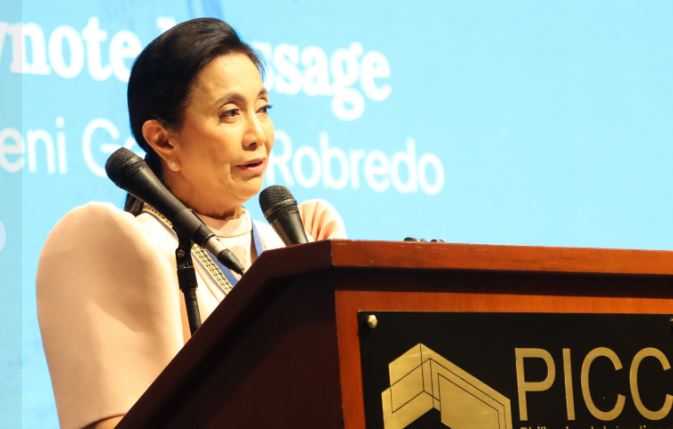Robredo’s Angat Buhay eyes tie-up with gov’t for free mental health services
By LLANESCA T. PANTI, GMA Integrated News Published April 11, 2024 8:32pm Former Vice President Leni Robredo on Thursday expressed openness to work with the government to address the growing demand for free and accessible mental health services. Robredo, chairperson of the Angat Buhay, said her group is eyeing to revive by the second quarter […]


By LLANESCA T. PANTI, GMA Integrated News
Former Vice President Leni Robredo on Thursday expressed openness to work with the government to address the growing demand for free and accessible mental health services.
Robredo, chairperson of the Angat Buhay, said her group is eyeing to revive by the second quarter of the year the Bayanihan E-Konsulta.
The online consultation platform was one of the programs of her office at the height of the COVID-19 pandemic. Its volunteers were able to provide mental health services to over 1,000 people during the period of the health emergency, and has since been carried over to Angat Buhay.
“We acknowledge the difficulties of responding to the growing demand for free and accessible assistance in this area especially because mental health concerns…which require longer and more focused interventions,” Robredo said in her keynote speech in the symposium called “Paglilinaw sa Alingawngaw: Breaking Stigmas in Mental Health through Research and Development” held in Pasay City.
“This persistent need and intricacies of the intervention it requires have inspired us to bring Bayanihan E-Konsulta mental health services to as many communities as possible. We hope to launch it before the end of the second quarter this year,” she said.
“As we make this shift, we are looking to collaborate with more groups and volunteers, and we thank you for inviting us over because this will provide for us with a bigger network and a bigger platform to collaborate our efforts with you,” Robredo added.
The former vice president said the expanded Bayanihan E-Konsulta mental health services are being assisted by partners like the Circle of Hope, MLAC Institute For Psychosocial Services, Inc. and Henry Ford Health for integration of zero suicide framework.
“As the needs shift and evolve, we recognize that there is still much more to do. With limited resources and an approach that relies heavily on institutional treatment, so many people in the communities remain vulnerable,” Robredo said.
“Community-based experiences and intervention provide valuable opportunities to strengthen our understanding and resolve, whether it is about strengthening leadership or governance or designing mental health services that are accessible, affordable, and holistic,” she added.
Dr. Jaime Montoya, executive director of the Philippine Council for Research and Development under the Department of Science and Technology (DOST), agreed with Robredo about the need for more partnerships.
“Even before she became Vice President, she was already very much involved in programs related to mental health, especially in the communities. And let’s face it, we also need advocates, for influential people to help us. Of course, she is one of them [influential] people because she is the former Vice President,” Montoya told reporters.
“She can help us advocate for, as you’ve said, mainstream discussions on mental health,” he added.
DOST Undersecretary for Research and Development Dr. Leah Buendia said science is beyond politics.
“If you want to help through science and technology, it is a big help, whoever you are,” she added.
Further, Montoya said that the DOST is also working on a mental health package under the state-run Philippine Health Insurance Corporation (PhilHealth) so that mental health professionals would receive just compensation for their work.
“Of course, there’s free services, but we also need to compensate our health workers for their work. Hindi naman puede na charity lahat kasi may mga pamilya rin ‘yan,” he said.
(They can’t do charity work all the time because they have to earn a living for their family, too.)
“PhilHealth gave us the money for research on how health care workers can be compensated for the work that they do for us to find the best package, and we are excited about this,” Montoya added.—LDF, GMA Integrated News














